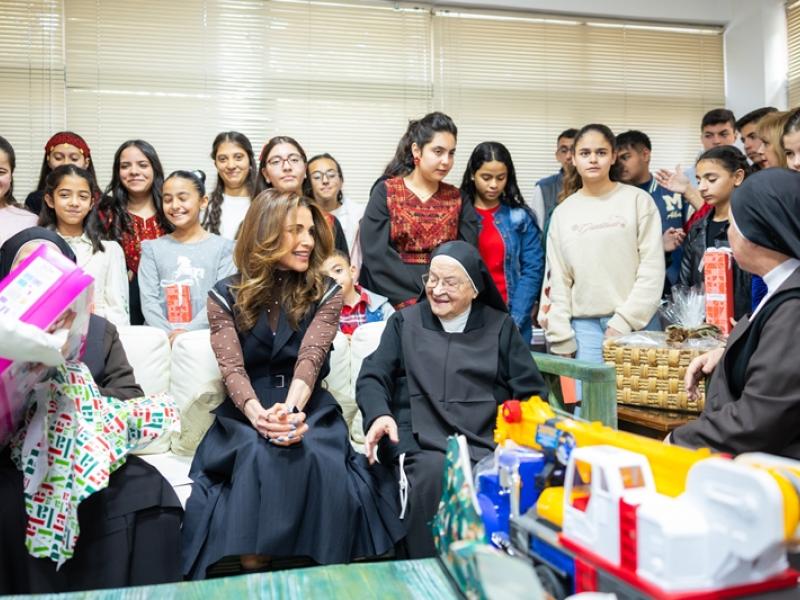(Royal Hashemite Court, Communication & Information Division - The Hague) His Majesty King Abdullah reiterated that there cannot be lasting peace until injustice against Palestinians is corrected.
"This is the basis for the landmark Arab Peace Initiative. Articulated at the 2002 meeting of all Arab states, it offered a comprehensive settlement… guaranteeing Israel's security to live in peace with its neighbors… and providing, at long last, a sovereign, viable and independent Palestine," the King told the International Court of Justice (ICJ) in The Hague on Tuesday.
Full text of His Majesty's speech
King Abdullah, who concluded his state visit to the Netherlands and returned today, praised the UN court for an advisory opinion it issued in 2004, saying that the barrier being built by Israel around parts of the West Bank was illegal and should be torn down.
"The court's opinion speaks to the profound injustice which the Palestinian people have suffered for decades," the King said. "There can't be lasting peace until this injustice is corrected.”
The court's opinion “asserted the need for such a negotiated solution, one that will establish a Palestinian state, existing side by side with Israel and its other neighbors — with peace and security for all in the region," the King said.
It was “more than a declaration about the illegality of the wall — a barrier that would divide Israelis and Palestinians even further… a barrier that would perpetuate conflict in our region. By pronouncing, extensively, on long-standing questions of legality, this court has given Arabs, Israelis and the international community firm ground on which to build peace in our region — a new foundation of international legality and justice. This court ruled, clearly, that the Palestinian territories are occupied… that the Palestinian people possess a legal right to self-determination, on Palestinian territory… and that the conflict will only be brought to an end when all relevant Security Council resolutions are, finally, implemented," the King told the international tribunal.
It is vital now to move the peace process forward on this basis, King Abdullah added, urging concerned nations to "act together — and with new urgency."
Jordan, he continued, has made a clear commitment to the cause of international peace and legality. "That commitment is attested to in our respect for this court, our good faith in treaty obligations, our support for United Nations conventions and international legal instruments," he said.
The UN and the ICJ, King Abdullah noted, are founded on the principle that violence, force and illegality should not be allowed to determine the future.
"The Arab people agree. We know that unilateral solutions will not bring peace, which requires a willing partnership, result-minded negotiations, and a settlement that is in full accord with international legality," he said.
The ICJ, the principal judicial organ of the UN, began work in 1946, when it replaced the Permanent Court of International Justice.
The court has a dual role: To settle in line with international law legal disputes and to give advisory opinions on legal questions.
Jordanian Awn Khasawneh is currently serving as ICJ vice president.
In her remarks, court's president, Rosalyn Higgins, commended Jordan's cooperation with the international community in promoting the basic principles in the UN Charter.
On Wednesday, King Abdullah and Queen Rania visited the national air and space laboratory, toured a replica of the Dutch East India Company ship "Batavia" and watched wood carvers at work before stopping at the factory of Spyker, which makes exclusive sports cars.





